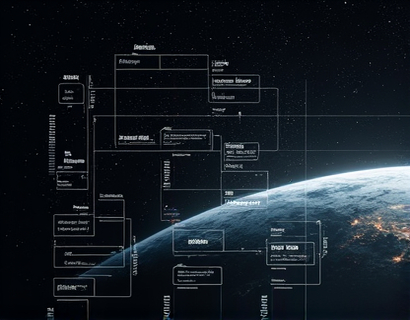Maximizing Leadership Efficiency with Advanced Management Dashboards for Diverse Teams
In today's fast-paced and increasingly globalized business environment, leaders face unique challenges when managing large and diverse teams. The complexity of overseeing multiple departments, cultures, and time zones can hinder productivity and strategic decision-making. To address these challenges, an advanced management dashboard has emerged as a pivotal tool for optimizing leadership efficiency. This comprehensive platform is expertly designed to streamline operations, enhance communication, and empower leaders to make informed decisions, ultimately boosting productivity across various sectors.
Streamlining Operations
One of the primary benefits of an advanced management dashboard is its ability to centralize and automate routine tasks. By consolidating data from various sources into a single interface, leaders can monitor key performance indicators (KPIs) in real-time, reducing the need for manual data collection and analysis. This streamlined approach not only saves time but also minimizes errors, ensuring that operations run smoothly and efficiently.
For instance, project management tools integrated within the dashboard allow leaders to track progress, assign tasks, and set deadlines with ease. Automated notifications and reminders ensure that team members stay on track, and any deviations from the plan are promptly addressed. This level of oversight is crucial for maintaining high standards of quality and consistency, especially in diverse teams where coordination can be challenging.
Enhancing Communication
Effective communication is the cornerstone of successful team management. An advanced management dashboard facilitates seamless communication by providing a unified platform where team members can collaborate and share information. Integrated chat and messaging features enable real-time discussions, while document sharing and collaboration tools ensure that everyone has access to the latest updates and resources.
Moreover, the dashboard can support multilingual capabilities, addressing the linguistic diversity often present in global teams. By breaking down language barriers, leaders can foster a more inclusive and cohesive work environment. Regular video conferencing options within the dashboard also help bridge the gap between remote and in-office team members, promoting a sense of unity and shared purpose.
Empowering Strategic Decision-Making
Data-driven decision-making is essential for leaders aiming to drive growth and innovation. An advanced management dashboard provides access to comprehensive analytics and insights, enabling leaders to make informed decisions based on real-time data. Dashboards can integrate with various data sources, offering a holistic view of team performance, financial metrics, and market trends.
Visualizations such as charts, graphs, and heat maps make complex data more accessible and easier to interpret. Leaders can quickly identify areas of strength and opportunity, allocate resources more effectively, and adjust strategies as needed. This data-centric approach not only enhances decision-making but also builds trust among team members, who see that choices are based on solid evidence rather than intuition.
Customization and Flexibility
Every organization is unique, with specific needs and workflows. An advanced management dashboard offers high levels of customization, allowing leaders to tailor the platform to their specific requirements. This flexibility ensures that the tool aligns with the organization's culture and operational processes, maximizing its effectiveness.
Customizable dashboards can be configured to display the most relevant KPIs and metrics for different roles and departments. Leaders can also set up personalized workflows, automate repetitive tasks, and create custom reports to meet their unique needs. This level of adaptability ensures that the dashboard remains a valuable asset over time, even as the organization evolves.
Scalability and Integration
As organizations grow, their management needs become more complex. An advanced management dashboard is designed to scale seamlessly, accommodating an increasing number of users and expanding data volumes without compromising performance. This scalability is crucial for leaders managing teams that are growing or undergoing restructuring.
Integration with existing systems and tools is another key feature. The dashboard can connect with popular software applications such as CRM, ERP, and HR systems, ensuring a smooth transition and minimizing disruptions. This interoperability allows for a more cohesive and efficient workflow, as data can be shared and synchronized across platforms.
Enhancing Team Collaboration
Collaboration is vital for the success of diverse teams, where members may have different backgrounds, skills, and working styles. An advanced management dashboard fosters collaboration by providing tools that encourage teamwork and knowledge sharing. For example, project boards and task lists enable team members to see the big picture and understand how their contributions fit into the overall goals.
Feedback and recognition features within the dashboard can boost morale and motivation. Leaders can acknowledge outstanding performance and provide constructive feedback, fostering a culture of continuous improvement. By promoting collaboration and recognition, the dashboard helps build a positive and productive team dynamic.
Security and Compliance
In an era where data security and compliance are paramount, an advanced management dashboard prioritizes the protection of sensitive information. Robust security measures, including encryption, multi-factor authentication, and regular security audits, ensure that data remains secure. Compliance with industry standards and regulations, such as GDPR and HIPAA, is also a key consideration, providing leaders with peace of mind.
Transparent privacy policies and user controls allow team members to manage their data preferences, enhancing trust and engagement. By addressing security and compliance proactively, the dashboard supports organizations in maintaining their reputation and avoiding potential legal issues.
Case Studies and Success Stories
Numerous organizations across various sectors have successfully implemented advanced management dashboards, achieving significant improvements in leadership efficiency and team productivity. For example, a multinational corporation in the technology sector reported a 30% increase in project completion rates after adopting a comprehensive dashboard. The centralized view of project statuses and real-time updates enabled their leaders to identify and resolve bottlenecks quickly.
In the healthcare industry, a large hospital network utilized the dashboard to streamline operations across multiple departments. The integrated scheduling and resource allocation tools led to a 25% reduction in wait times, enhancing patient satisfaction and operational efficiency. Leaders praised the dashboard for its ability to provide actionable insights, supporting data-driven decision-making.
These success stories highlight the versatility and impact of advanced management dashboards in diverse industries. By leveraging these tools, leaders can overcome the challenges of managing large and diverse teams, driving their organizations toward greater success.
Conclusion
In conclusion, an advanced management dashboard is an indispensable tool for leaders aiming to maximize efficiency, enhance communication, and empower strategic decision-making. By streamlining operations, fostering collaboration, and providing actionable insights, these platforms help organizations navigate the complexities of managing diverse teams. As businesses continue to evolve, the adoption of such dashboards will become increasingly essential for staying competitive and achieving long-term success.










































